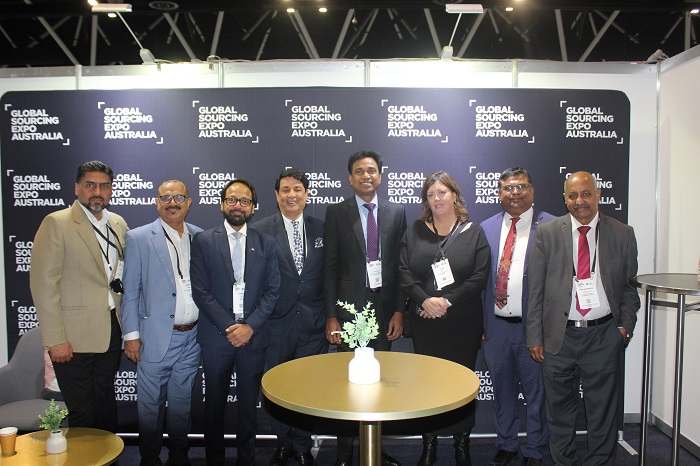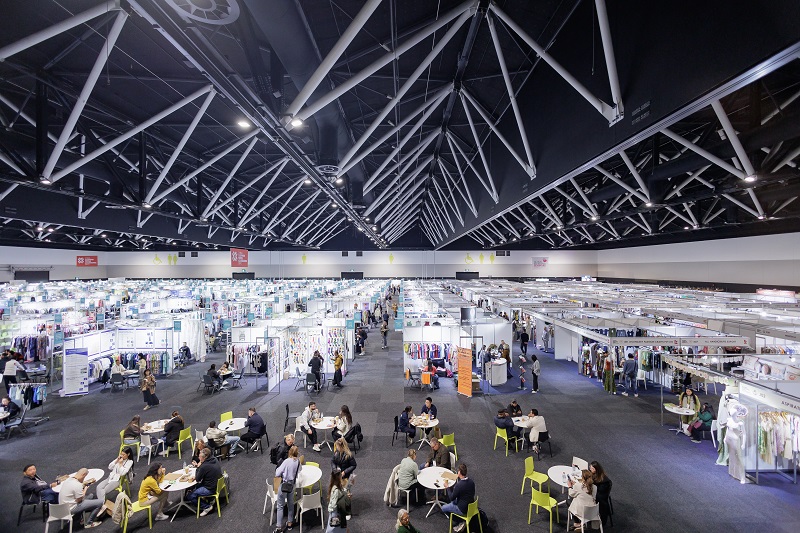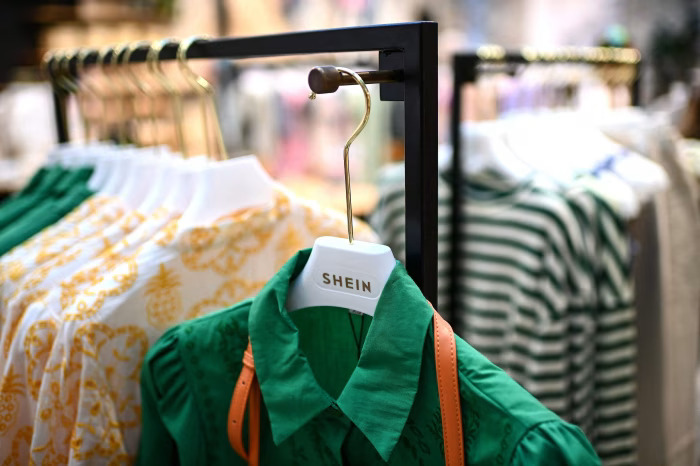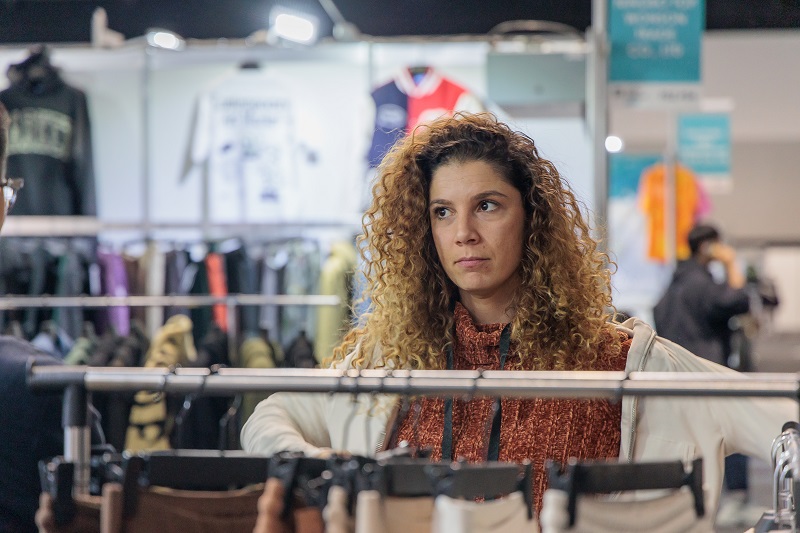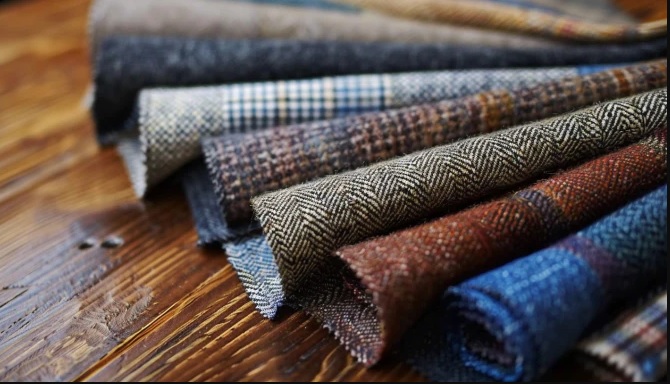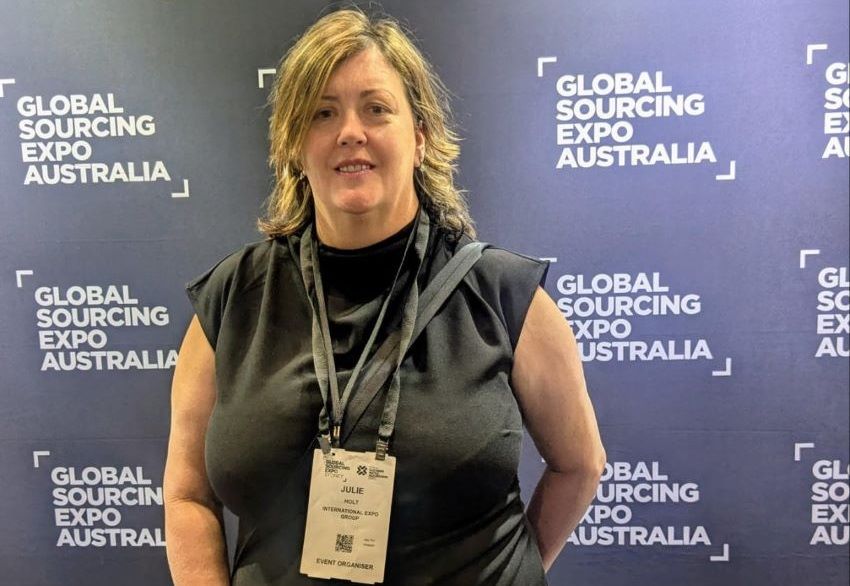FW
Global yarn production rose 11 per cent in the Q2, led by a 12 per cent gain in Asia and an 11 per cent increase in Brazil. Global fabric production improved nearly nine per cent in the quarter, with a 10.4 per cent increase in Brazil, a 9.8 per cent gain in Asia and a 9.2 per cent hike in Africa. Overall global fabric output rose four per cent compared to the second quarter of 2016.
Yarn stocks fell one per cent in the quarter, as Asia, Europe and Brazil saw their yarn inventories increase 0.7 per cent, 2.3 per cent and 11.5 per cent. But the world average was driven down by a 12 per cent decrease of yarn stocks in Egypt. The stocks’ improvement of 13 per cent compared to the year-ago period included decline of 40 per cent in Brazil and three per cent in Europe, balanced by increases of ten per cent in Asia and 112 per cent in Egypt.
Worldwide fabric stocks rose 3.3 per cent in the period, driven by a 23 per cent increase in Brazil. Global fabric inventories in the quarter decreased eight per cent compared to a year earlier.
Estimates for the third quarter indicate a stable trend in both global yarn and fabric production.
After seeing a fall for three months in a row, readymade garment exports from India rose by 25 per cent in rupee terms and 30 per cent in dollar terms in September. The increase is attributed mainly to the upcoming Christmas season in western markets. The other factor is inventories piled up due to GST are now being cleared.
Of the total readymade garment exports, 52 per cent is woven and 48 per cent is knitwear. The sector started the year in April with 27.60 per cent growth in rupee terms and a 31.65 per cent increase in dollar terms. But in the following month growth in rupee terms was only 3.84 per cent.
Garment exports this year are expected to surpass last year’s total exports as, generally, exports tend to grow in the second half. January to March are the crucial months for readymade garment exports. Around 30 per cent to 40 per cent of exports have taken place during these three months in the last few years.
Customers are sourcing from India as a part of a de-risking strategy. Customers have also started asking for a reduction in price after the rupee started strengthening against the dollar. Exporters have been under enormous stress in the last few months due to uncertainty over the duty drawback scheme which was brought down from 7.7 per cent to two per cent. Exporters were also hit due to the reduction in ROSL to one per cent from 3.5 per cent earlier. In addition to that the prolonged confusion over GST rates on knitwear and textile garments also cast a shadow on exports and overall the industry lost five per cent growth in the first six months. Tirupur saw a marginal growth in the first six months to around Rs 13,000 crores as compared to Rs 12,550 crores in the same period last fiscal.
Continued dependence on imports of raw and auxiliary materials will hurt Vietnam’s textiles and garment industry. It will prevent the country from taking advantage of the various free trade agreements and blunt the industry’s competitive edge further and reduce the value added component.
By the end of last year, 99 per cent of the cotton used in the textile industry was imported, a year-on-year increase of two per cent in quantity and 2.5 per cent in value. Each year, Vietnam earns of billions of dollars from textile and garment exports but businesses make modest profits because the garment industry spends more than half of its earnings on importing raw materials.
The textile industry is knotted in the middle i.e. highly productive in terms of making yarn and final products but stunted in the production of fabric and other materials. With the industry’s annual growth rate at about eight per cent, by 2025 the amount of fabric needed will double to 18 billion meters, meaning, without further investment in domestic production, Vietnam will have to import 15 billion meters.
It’s necessary for domestic businesses to invest in the dyeing process, implement a solid human resource training strategy and focus heavily on building an integrated value chain between domestic producers.
"Like every other industry, textile and specifically cotton producers need to get tech savvy to become more efficient and profitable. In the US, Randy Norton, Director, University of Arizona’s Safford Agricultural Center (SAC), has been mulling over the possibility of tech intervention for sometime. Currently, he is researching on 38 cotton projects in the Grand Canyon State (mostly varietal trials) designed to evaluate inputs, reduce costs, protect the crop, and increase yields. During his work, he found out equipment is a major expense on cotton growers’ operations, including the infamous cotton picker."

Like every other industry, textile and specifically cotton producers need to get tech savvy to become more efficient and profitable. In the US, Randy Norton, Director, University of Arizona’s Safford Agricultural Center (SAC), has been mulling over the possibility of tech intervention for sometime. Currently, he is researching on 38 cotton projects in the Grand Canyon State (mostly varietal trials) designed to evaluate inputs, reduce costs, protect the crop, and increase yields. During his work, he found out equipment is a major expense on cotton growers’ operations, including the infamous cotton picker. Today’s price tag for a new round bale picker or a square bale module picker is in the $750,000 ballpark; which is exorbitantly high. With new pickers, you need just one or two people and one machine to harvest the crop. This allows the grower to accomplish multiple tasks in a single pass. It’s a tremendous cost savings for growers, Norton said.
Picker technology

Norton points out the latest pickers eliminate the need for multiple buggies and module builders to service one older standard picker and its fiber load, and the employees to operate it. New systems allow growers to focus their employees on more important and timely tasks. Another benefit of ‘all-in-one’ pickers is the operational speed. Older pickers traveled down cotton rows at a snail’s pace from 2 to 2.5 miles per hour (mph). Today’s pickers about double this with a 5 to 5.5 mph picking speed, covering more ground in less time, which saves the grower money. New picker benefits and other technology are changing the harvest landscape in Arizona and across other cotton-growing areas. With higher picker costs, more producers are shifting to custom harvested cotton. In southeastern Arizona’s Cochise County, about 75 per cent of the cotton is now custom harvested.
As far as crop protection is concerned, Arizona cotton farmers used to spray an average of 15-plus times per season to control a handful of different pests. Today, the average is less than two sprays per season. Norton added that today’s transgenic cottonseed technologies combined with specific targeted insecticides have really made insect control much more efficient today.
Water use
Advances in irrigation continue to improve water use efficiency in irrigated Arizona cotton. Norton estimates consumptive water use in cotton is about 40-45 inches per acre. With lower irrigation efficiencies, it may take up to 60-65 inches to meet the demand and also manage higher salinity levels in the soil. Cotton can withstand electrical conductivity in the soil up to 7-8 decisiemens per meter before you see yield decline. It’s a very salt tolerance crop. Different growing stages of the cotton plant are more sensitive to salt, including seedlings. To combat salt, many Arizona growers use alternate furrow irrigation to push salt across the seed row. In Buckeye located west of Phoenix, cotton is planted dry and then irrigated up every other row to push the salt line across the seed row.
Most Arizona cotton fields use a furrow-flood type irrigation system with more than 50 per cent water efficiency, and reused tail water on another field. The maximum efficiency for this irrigation system is about 70 per cent. In sprinkler and drip systems, water use efficiency tops out at about 80-90 per cent efficiency. In the Coolidge area of Pinal County, many growers are flooding cotton on the flat without furrows. They can flash water more quickly on the field to gain higher water use efficiency.
Minya is the capital of the Minya governorate in Upper Egypt, located about 245 km South of Cairo. The minister of Investment and International Cooperation Sahar Nasr met members of the Council to discuss the possibility of involving the private sector in developing a free zone specialised in textile industries in Minya. Mohamed Kassem, Head of the Supreme Council for Textile Industries, said work is in progress to establish a partnership with a major Chinese company to develop this project which is looking at developing a free trade zone that will specialise in textile industries in Minya. He said the establishment of a company will commence, post issuance of approval to establish the zone.
A statement from the Ministry of Investment confirmed they are coordinating with the governor of Minya to complete all necessary project procedures to transform mainly Minya and Egypt, in general, into a regional hub for the textile industries in the Middle East and Africa.
Two industrial parks will open in Ethiopia by the end of this month. The Adama and the Dire Dawa industrial parks specialize in textile, apparel and agro processing. Both parks are close to the port of Djibouti, so it is expected that they will contribute to the facilitation of foreign trade for the country.
The parks are expected to create a total of 50,000 jobs on going operational. Anchor companies are being invited to enter the parks. As the parks are fitted with the provision of one stop services, companies that enter the parks will get services within the compounds.
The Hawassa industrial park in Ethiopia has attracted 18 leading global apparel and textile companies. It has the capacity to create employment opportunities for 60,000 people. As an eco-park, Hawassa is mostly powered by renewable electricity sources. The design and construction of Hawassa was conceived around energy and water conservation principles – including maximization of natural lightning and natural ventilation, fitting of low consumption bulbs, recycling of rain water, and solar powered LED street lights - making it Ethiopia’s first major eco-friendly development.
Ethiopia is Africa’s second most populous country, with an average GDP growth rate of 11 per cent for the past 11 years and a stable government with an ambitious 2025 vision to become Africa’s leader in light manufacturing.
The global technical textile market is likely to grow at a CAGR of 4.7 per cent over the next 10 years. By that time Asia-Pacific will be the world’s largest market for technical textiles. It has been estimated more than 50 per cent of global technical textile revenues will be earned by the Asia-Pacific region. The infrastructural development of this region increases the demand for technical textiles.
The meditech segment is projected to soar in the coming years because of its application in the areas of patient clothing and surgical equipment. By 2027 this segment is projected to show a rise of 4.9 per cent CAGR.
Demand for geotextiles is also increasing. These are being used in civil engineering, geotechnical and environmental design. Rise in civil engineering activities is also expected to promote the uptake of this material in the near future.
Companies like DuPont, Low and Boar, Ahlstrom, 3M, Avintiv, Arville Textiles, Milliken, Dickson-Constant, Baltex and Freudenberg are playing a leading role in the technical textile market. Possible chances of newcomers in the global market are likely to intensify the overall competition. Players are expected to focus on delivering customized solutions in the years to come to widen their consumer base.
For the period from July to September, the order index for Italian textile machinery manufacturers rose by six per cent compared to the same period in 2016. The primary foreign markets for Italian textile machinery showed a constant demand while growth has been ongoing for Italy’s domestic market, even if at a lower overall rhythm compared to the quarter from April to June.
Creativity, sustainable technology, reliability and quality are the characteristics which have made Italy a global leader in the manufacturing of textile machinery. Exports amount to more than 85 per cent of total sales. About 30 per cent of Italy’s revenue from the sale of textile machinery derives from the production of technical and innovative textiles. Demand for such products has consequently also driven a demand for ad hoc machinery specifically designed for this sector. The offering promoted by Italy’s textile machinery industry is thus expanding to the new demands of customers operating in this specific sector.
Italy is the world’s second largest producer of machinery for the textiles industry. In the production of machinery for tanning, and for the footwear and leather goods industry, Italy accounts for over 50 per cent of world production. The dynamic trend for Italy’s domestic market originates from a renewed climate of enhanced trust that is currently perceived in the textile sector. This has been triggered by the government’s commitment to enact a range of significant incentives for the country’s manufacturing system.
Lenzing, Core Denim and Unifi have launched a new denim. This is Future Black, the industry’s first certified fade-resistant black denim made using Lenzing Modal black fibers and Repreve black recycled fibers.
As many as 17 recycled plastic bottles go into making Future Black jeans—which also happen to boast superior softness, color retention and stretch—all the while leaving a smaller footprint on the environment. To prevent denim from fading, Future Black with Lenzing Modal black fibers uses an innovating dope dyeing technique that adds pigment during production so that the entire body of the fiber gets colored instead of just the surface, and there’s no need for a dye bath down the line.
In testing, Future Black denim showed no signs of color loss after more than 20 washes. Adding a recycled element to further expand the product’s sustainability, Repreve yarns mean plastic bottles that would have landed in landfills make their way instead into a pair of jeans. The Lenzing Modal Black fibers has a 50 per cent to 60 per cent less harmful impact on the environment than conventionally dyed fabric does because the manufacturing process uses less chemicals, fewer energy inputs and uses 64 per cent less water during the dyeing process.
An enterprise from India is creating an ecosystem of thousands of self-employed women, who work where they are than in far-off traditional garment factories. Industree Foundation was founded in 2000. Some 30 million women in India rely on fashion for employment. Industree aims to tackle poverty in the garment manufacturing industry and enable the garment industry to grow sustainably, embracing new technologies and empowering women.
Industree goes to tribal artisans and works with them in mud huts. It helps organise them into production units and create a sustainable business at the lowest possible cost.
In a traditional Indian garment factory, women commute on an average four hours a day. They either have to pay rent if they live away from home, or pay high daily travel costs, and are then vulnerable to having their wages, which are sent home to support the family, taken by a man.
Industree’s goal is to decentralise manufacturing, with the micro-entrepreneurs required to commute no more than five kms. This means women can keep more of the money they earn, and put more into child nutrition, the household, and the local community. This is also linked to a fall in domestic violence. Educating women on ethical production practices could also have an impact on climate change.


